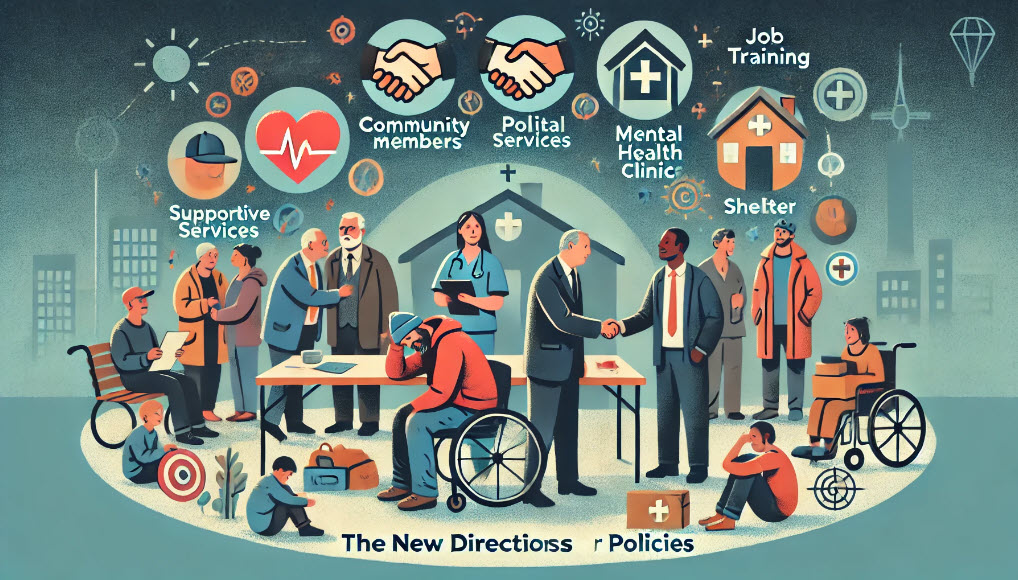Yesterday, the Supreme Court issued a landmark ruling in the case of “City of Grants Pass, Oregon v. Johnson Et Al.,” fundamentally reshaping how cities can address the homelessness crisis. The Court’s decision highlights the need for communities to adopt more compassionate and effective approaches, moving away from punitive measures that have proven both costly and counterproductive.
The Ruling: A New Direction for Homelessness Policies
The Supreme Court reversed the Ninth Circuit’s earlier decision, which had barred the City of Grants Pass from enforcing its public-camping ordinances against homeless individuals. In his opinion, Justice Gorsuch emphasized that the Eighth Amendment’s Cruel and Unusual Punishments Clause does not extend to prohibit generally applicable laws regulating camping on public property. However, the Court also acknowledged the complexity of homelessness and the necessity for policies that do more than criminalize the homeless.
Key Takeaways from the Ruling:
- Focus on Actions, Not Status: The Court clarified that the Cruel and Unusual Punishments Clause addresses the type and method of punishment following a criminal conviction, not the criminalization of behavior. This distinction means that while cities can regulate public camping, they must also recognize and address the underlying issues driving homelessness.
- Call for Compassionate Solutions: The ruling underlines the need for cities to develop comprehensive strategies that go beyond enforcement and include supportive services and adequate shelter options.
- Recognition of Policy Complexity: The Court highlighted the diverse causes of homelessness, such as economic conditions, mental health issues, and substance abuse, and the importance of multifaceted responses to these challenges.
Tools and Policies for Addressing Homelessness
The Secret Sauce Model, a comprehensive framework for addressing homelessness, aligns well with the Court’s ruling by advocating for humane and effective strategies. Here are some key tools and policies from the model:
- Personalized Case Management: Utilizing the Self-Sufficiency Matrix (SSM), communities can provide tailored support to homeless individuals, tracking progress across crucial domains such as housing, employment, and healthcare.
- Shelter Expansion and Supportive Services: Increasing shelter capacity and integrating services like mental health support, addiction recovery, and job training are vital. The model emphasizes the importance of creating a supportive environment that fosters long-term stability and self-sufficiency.
- Economic and Public Health Assessments: Conducting economic impact studies, cost-benefit analyses, and public health assessments helps communities understand the financial and societal costs of homelessness. These tools often reveal that investing in permanent supportive housing and integrated healthcare solutions leads to significant cost savings and better outcomes.
- Legal and Policy Reforms: Moving away from punitive measures, the model advocates for supportive interventions. The high costs associated with criminalizing homelessness—such as arrests, court proceedings, and incarceration—can be reduced by investing in legal aid and housing solutions.
- Community-Based Research and Engagement: Engaging homeless individuals and community members in participatory research provides critical insights into the barriers to housing and services. This collaborative approach builds trust and strengthens community support for homelessness solutions.
A New Direction Forward
The Supreme Court’s ruling and the principles outlined in The Secret Sauce Model point towards a paradigm shift in how we address homelessness. By focusing on supportive services, expanding shelter options, and implementing strategic investments, communities can protect the dignity and rights of homeless individuals while effectively tackling the root causes of homelessness.
As we move forward, it is crucial for cities to adopt these compassionate and comprehensive strategies, ensuring that all individuals have the opportunity to rebuild their lives with dignity and support. The ruling serves as a call to action for policymakers, advocates, and community members to work together in creating sustainable solutions to the homelessness crisis.
For more insights and detailed strategies on reducing homelessness, refer to The Secret Sauce Model and stay updated on future developments in homelessness policies and solutions.

